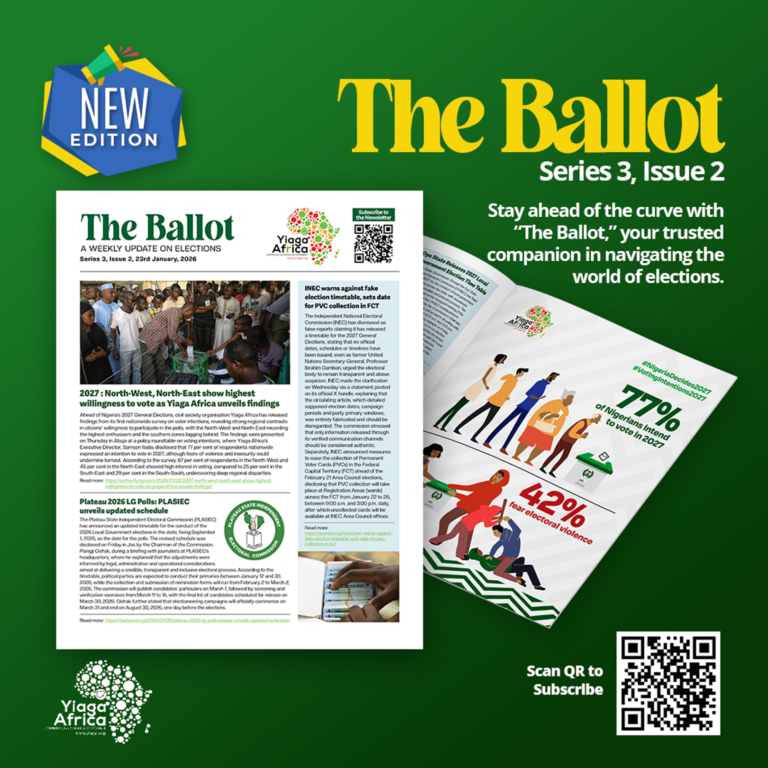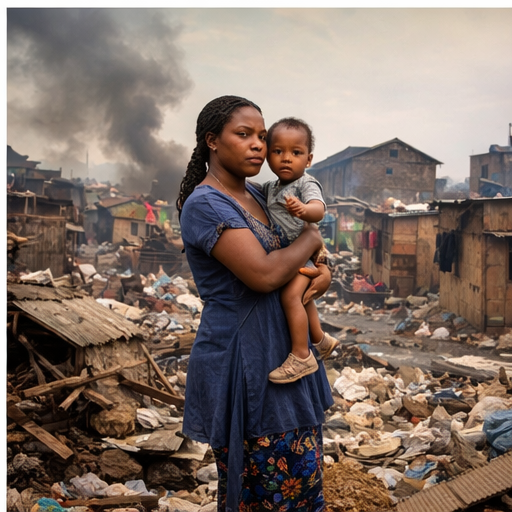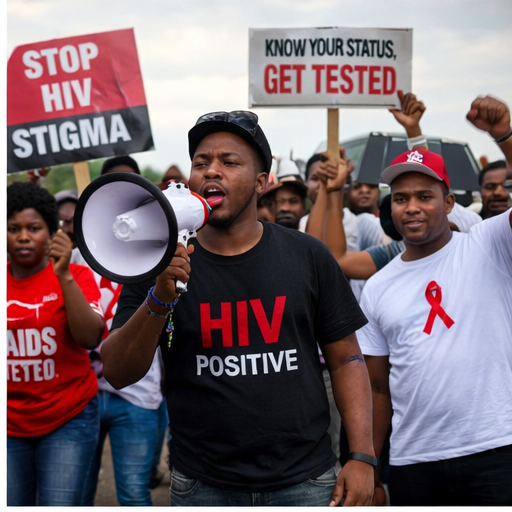
By Ameh Gabriel
In an era where information is available at the tap of a finger, the ability to navigate, analyze, and critically engage with the media has never been more crucial. In Nigeria, a country that boasts a population of over 230 million people and a rapidly growing internet penetration rate, media literacy has become a necessary skill for citizens, journalists, students, and policymakers alike. As the media landscape evolves, understanding how information is produced, consumed, and manipulated is essential to safeguarding democracy, fostering an informed public, and preserving national unity.
The Power and Influence of Media in Nigeria
The media in Nigeria holds immense power. From traditional outlets like radio, television, and newspapers to digital platforms such as social media and online blogs, media plays a central role in shaping public opinion, influencing political discourse, and directing economic and social agendas. With over 100 million social media users, Nigeria is among the largest digital markets in Africa. However, this reach also comes with significant challenges.
While the media provides an avenue for free speech, entertainment, and education, it also opens doors for the spread of misinformation, disinformation, and propaganda. This is particularly concerning in a nation with diverse ethnic, religious, and political landscapes where narratives can easily become polarized. Therefore, the ability to discern fact from fiction has become a vital tool in navigating today’s media ecosystem.
What is Media Literacy?
Media literacy refers to the ability to access, analyze, evaluate, and create media content in various forms. It involves a set of skills that allow individuals to understand the role of media in society, critically assess media messages, and make informed decisions based on the information they consume. In essence, media literacy equips citizens to be active and responsible participants in their media environments, whether in consuming news, engaging on social media, or creating content.
In Nigeria, where rapid digitalization is paired with an often fragmented and contentious media landscape, media literacy is more important than ever. Here’s why:
Combating Misinformation and Disinformation
One of the most pressing issues Nigeria faces today is the rampant spread of misinformation and disinformation. Fake news, misleading headlines, and doctored images have become all too common on social media platforms, especially during election periods, national crises, or moments of political instability. The consequences can be severe, from triggering violence and electoral malpractices to inciting ethnic and religious conflicts.
For instance, during Nigeria’s 2019 and 2023 general elections, various rumors and false claims circulated widely on social media, ranging from fabricated election results to misleading reports on political violence. Misinformation like this undermines the credibility of democratic institutions and erodes public trust in the electoral process.
Media literacy empowers Nigerians to critically evaluate the information they encounter. By teaching individuals how to verify facts, cross-check sources, and identify credible outlets, media literacy becomes a tool in curbing the spread of falsehoods and reducing their potential harm.
Enhancing Civic Engagement and Democracy
In a democratic society, an informed citizenry is crucial. Nigeria, like any democracy, requires its people to be well-informed about political issues, government policies, and social developments. Media is the primary conduit through which Nigerians receive information about their leaders, their rights, and their responsibilities as citizens. However, much of this information is often presented through biased or sensationalized lenses.
A media-literate population is better equipped to discern political manipulation and understand the context behind the messages they receive. By questioning the motives behind media content, citizens can engage more meaningfully in political discourse, advocate for their interests, and participate actively in democratic processes.
Furthermore, media literacy fosters critical thinking, which is essential for making informed decisions in elections, public policy debates, and everyday life. As citizens become more adept at analyzing media messages, they can hold public figures accountable, demand transparency, and advocate for positive societal change.
Fostering National Unity and Social Cohesion
Nigeria is a nation of over 250 ethnic groups, with diverse cultures, languages, and traditions. This rich diversity, while a source of pride, often leads to tension and misunderstanding, especially in the context of religious and ethnic differences. The media, particularly social media, plays a significant role in either bridging or deepening these divides.
In many cases, sensational media reports, biased narratives, and inflammatory rhetoric on social media have fueled ethnic and religious conflicts. This has been particularly evident in issues like the #EndSARS protests, the Boko Haram insurgency, and inter-ethnic clashes.
Media literacy helps combat the divisiveness of polarizing media by encouraging individuals to engage with multiple perspectives, understand different viewpoints, and foster tolerance. It teaches Nigerians to recognize when media messages are deliberately designed to incite hatred or division, and it equips them with the tools to seek out more balanced, factual information.
Navigating the Digital Age and Social Media
Nigeria has experienced an explosion in digital media consumption, with social media platforms like Twitter, Facebook, Instagram, and TikTok becoming central to everyday life. While these platforms have democratized information, they have also opened the door for the rapid spread of rumors, hate speech, and harmful content.
Unfortunately, many Nigerians especially the youth are not always equipped to navigate these digital spaces effectively. Without proper media literacy skills, it becomes easy to fall prey to online scams, malicious content, or extremist propaganda. The dangers of online misinformation were starkly evident during the COVID-19 pandemic, where myths and unverified claims about the virus spread rapidly on WhatsApp and Twitter.
Media literacy in the digital age is not just about recognizing fake news but also about understanding the implications of one’s online behavior. It teaches responsible content creation, ethical social media use, and the importance of safeguarding personal information online.
Empowering the Next Generation
The future of Nigeria lies in the hands of its youth, who are the most active consumers and producers of digital media. As such, it is imperative to equip young Nigerians with the skills to navigate the complexities of modern media. Schools, universities, and community organizations must prioritize media literacy in their curricula to build a generation of informed, critical thinkers.
By fostering a culture of media literacy from an early age, Nigeria can ensure that future leaders, entrepreneurs, and citizens are better prepared to confront the challenges posed by a constantly evolving media landscape.
How Can Media Literacy Be Promoted in Nigeria?
To address the media literacy challenge in Nigeria, the following steps are essential:
Education and Training: Incorporating media literacy into school curricula at all levels would help students develop critical thinking skills and the ability to assess media content. Additionally, offering community-based workshops and online courses can reach a wider audience.
Collaboration with Media Organizations: The government, media outlets, and civil society organizations must work together to promote media literacy campaigns. This can involve publishing guides, holding public seminars, and encouraging media outlets to practice responsible journalism.
Support for Fact-Checking Initiatives: Organizations such as FactCheckNigeria and The Cable’s Fact-Check are already doing great work in debunking fake news and misinformation. These platforms should be supported and expanded to further educate the public on media credibility.
Promote Digital Literacy: As the internet becomes more embedded in daily life, digital literacy is an important complement to media literacy. Nigerian internet users must be taught how to identify reliable online sources, avoid scams, and protect their digital identities.
In a media landscape flooded with content and competing narratives, media literacy in Nigeria is not just a luxury—it’s a necessity. By equipping citizens with the skills to critically assess the media they consume, we are fostering an informed, responsible public capable of navigating the complexities of modern society. Media literacy enables Nigerians to be active participants in their democracy, protects them from the dangers of misinformation, and helps build a more united, cohesive nation.
As the digital age continues to evolve, Nigeria must prioritize media literacy to ensure that its people remain informed, empowered, and equipped to face the challenges of the 21st century.









Nigerians must prioritize media literacy indeed…💯